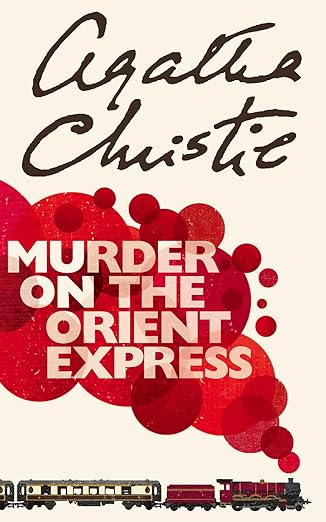| We’ve now posted a total of 17 book reviews. |
| Available now at the Amazon.com website … CLICK HERE! |
| Any and all books purchased through our website cost you nothing extra, but do help support our ongoing efforts. |
 Agatha Christie’s “Murder on the Orient Express” is the quintessential closed-circle mystery: precise as clockwork, luxurious as its setting, and coolly aware that civility can cloak the sharpest edges. Stranded by snow on the famous Istanbul–Calais coach, a cosmopolitan cast finds itself sealed in a corridor of polished wood and velvet while Hercule Poirot is pressed into service after a passenger is found dead. The confinement is more than geographical; Christie turns the train into a moral crucible, a place where schedules, manners, and national stereotypes collide under the pressure of suspicion. It’s a puzzle box, yes, but one lined with felt—quiet, insulated, and inescapable. Agatha Christie’s “Murder on the Orient Express” is the quintessential closed-circle mystery: precise as clockwork, luxurious as its setting, and coolly aware that civility can cloak the sharpest edges. Stranded by snow on the famous Istanbul–Calais coach, a cosmopolitan cast finds itself sealed in a corridor of polished wood and velvet while Hercule Poirot is pressed into service after a passenger is found dead. The confinement is more than geographical; Christie turns the train into a moral crucible, a place where schedules, manners, and national stereotypes collide under the pressure of suspicion. It’s a puzzle box, yes, but one lined with felt—quiet, insulated, and inescapable.
Christie’s structural discipline is on full display. The novel moves with procedural clarity: compartment inventories, timed movements, interviews that click shut like carriage doors. Each chapter advances the timetable and deepens character sketches without bloating the page count. Christie’s famous “fair play” ethic holds; information arrives in plain view, yet arranged so shrewdly that readers will overlook the ordinary because they’re scanning for the exotic. Poirot’s method—attention to speech rhythms, to the choreography of small objects, to the gap between what people say and what their habits reveal—feels rigorous rather than theatrical, even when the setting invites a bit of glamour. What elevates the book beyond technical excellence is its thematic charge. Christie probes the idea of justice from multiple angles: legal, ethical, and personal. The train’s international mix allows her to stage friction without caricature, contrasting public codes with private loyalties and asking what “right” looks like when the law is tidy but the human story is not. Poirot becomes less a conjuror than a moral auditor, weighing competing claims with a coolness that never slides into cynicism. The snow outside is more than weather; it’s a blankness against which motives stand out in high relief. The tone stays courteous, almost ceremonious, as if the investigation itself were a ritual designed to test not just alibis but philosophies. Christie’s prose is deceptively simple—clean lines, brisk dialogue, a reporter’s eye for small, telling details—and the result is momentum without hurry. She sketches passengers with economical strokes, giving each just enough texture to feel plausible while keeping the focus on pattern recognition. If there’s a limitation, it’s inherent to the form: the cast can feel schematic by design, their primary purpose to serve the geometry of the problem. But that geometry is beautifully drawn. The train’s compartments and corridors supply a natural grid; Christie uses it to explore how people organize truth, and how easily a tidy narrative can be assembled from partial views. As an introduction to Poirot, the novel is welcoming; as a benchmark for the genre, it remains formidable. The pleasure isn’t merely in reaching an answer but in watching a mind insist on proportion—facts arranged, motives weighed, conclusions delivered with exactitude. Without stepping into melodrama or sentimentality, “Murder on the Orient Express” balances elegance and unease, giving readers a chamber piece that resonates beyond its era. It’s a masterclass in constraint: a small stage, a crisp performance, and the quiet aftertaste of an argument you’ll keep turning over. |
